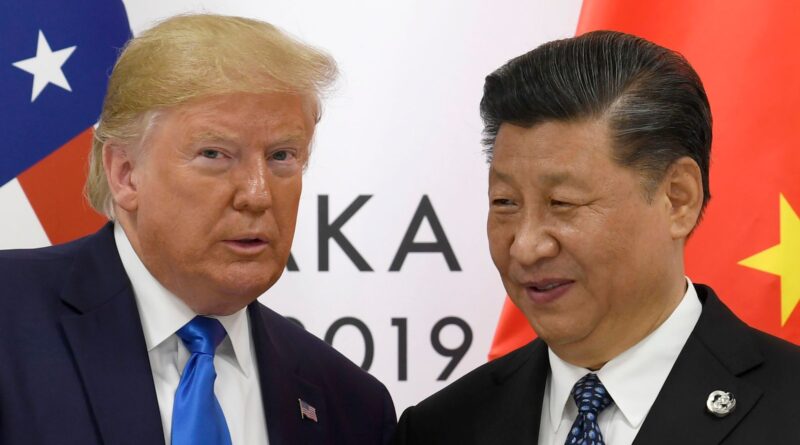China Readies for Trade War with the US – Uncertainty Surrounds Trump’s Strategy | World News
It’s not just pensions, investments, and jobs that are at stake; there’s more to the story.
At its core, this struggle is about global leadership.
The alarming reality for the United States and its Western allies is that China appears to be more ready and willing to engage this time.
On one side, there’s a disorganized US administration constantly shifting its policies. On the other side, a resolute authoritarian regime stands firm.
During Trump’s initial presidency, China was hesitant about how to tackle America’s unpredictable leader and his application of tariffs.
This time, the rhetoric from its diplomats is significantly sharper and more defiant; they appear to convey, “We are ready, and we will not back down.”
Read more: US trade war with China intensifies
The U.S. and China have been intertwined in a complex relationship of dependence and conflict.
In the 1990s, China was granted favorable trading conditions.
Western leaders believed, “If they grow rich like us, they’ll eventually embrace democracy.”
This was an overly simplistic assumption. China persisted in its authoritarian ways, employing tactics such as intellectual property theft and reverse engineering to rival the West.
Yet the West largely overlooked these tactics. Economic growth seemed to justify the relationship, as China produced goods for the world and elevated millions from poverty, while Americans benefited from lower living costs.
Decades later, these two economic giants remain closely linked, but the tension between them has intensified.
Under Trump’s leadership and subsequently under Biden, the U.S. has recognized the pitfalls of being overly accommodating toward China. Both administrations have aimed to address what they perceive as an unbalanced trading arrangement favoring Beijing.
The Chinese perspective, however, is quite different. They strongly oppose the U.S.’s position as the preeminent global power, arguing that the liberal world order, crafted by and for America, is outdated.
They view this situation as an opportunity to reshape global dynamics and are preparing for that.
China positions itself as a stable, reliable alternative to American hegemony. The initial months of Donald Trump’s second term only strengthen this notion.
The message to other nations is clear: If you seek a partner who guarantees economic stability while avoiding uncomfortable conversations about human rights, look toward Beijing instead of Washington.
However, should China rise to replace America, the ramifications would be significant.
Just ask the residents of Hong Kong, where freedoms are severely curtailed, the Uyghurs of Xinjiang, who face conditions widely considered genocidal, or the Taiwanese, who are currently enduring intense pressure from Beijing.
Simultaneously, the U.S. has managed to undermine its own image, showing less stability, sound governance, and rational decision-making.
In any drawn-out trade conflict, Trump is taking on an opponent that is ready and resolute.
China has relocated significant portions of its industry to other nations to circumvent tariffs and has amassed a substantial financial buffer through its sovereign wealth fund, which has been deployed lately to support falling stock markets.
Read more analysis:
For China, capitulating to Trump isn’t an option
Could Trump’s tariffs lead to a global recession?
China has its challenges, including serious demographic issues, an ailing economy, and growing public dissatisfaction.
Yet, it possesses a notable advantage: a willingness to endure hardship.
This cultural trait, referred to as “eating bitterness,” is seen as commendable. The belief is that their future lies at the pinnacle of a new multipolar world, and they may be poised to capitalize on this moment.
It’s uncertain whether the United States shares the same level of commitment and resilience—or if its president fully grasps the challenge ahead.





